
A Message of Mind
The first of the Series on Mind written 42 years ago. A Message of Mind provides insights into the origin of consciousness, the dynamics of the human mind and the positive effects of using truth to cope with reality. The book offers hope for individuals seeking to find themselves and for a humanity struggling to survive in the face of economic ruin, environmental destruction and endless war.
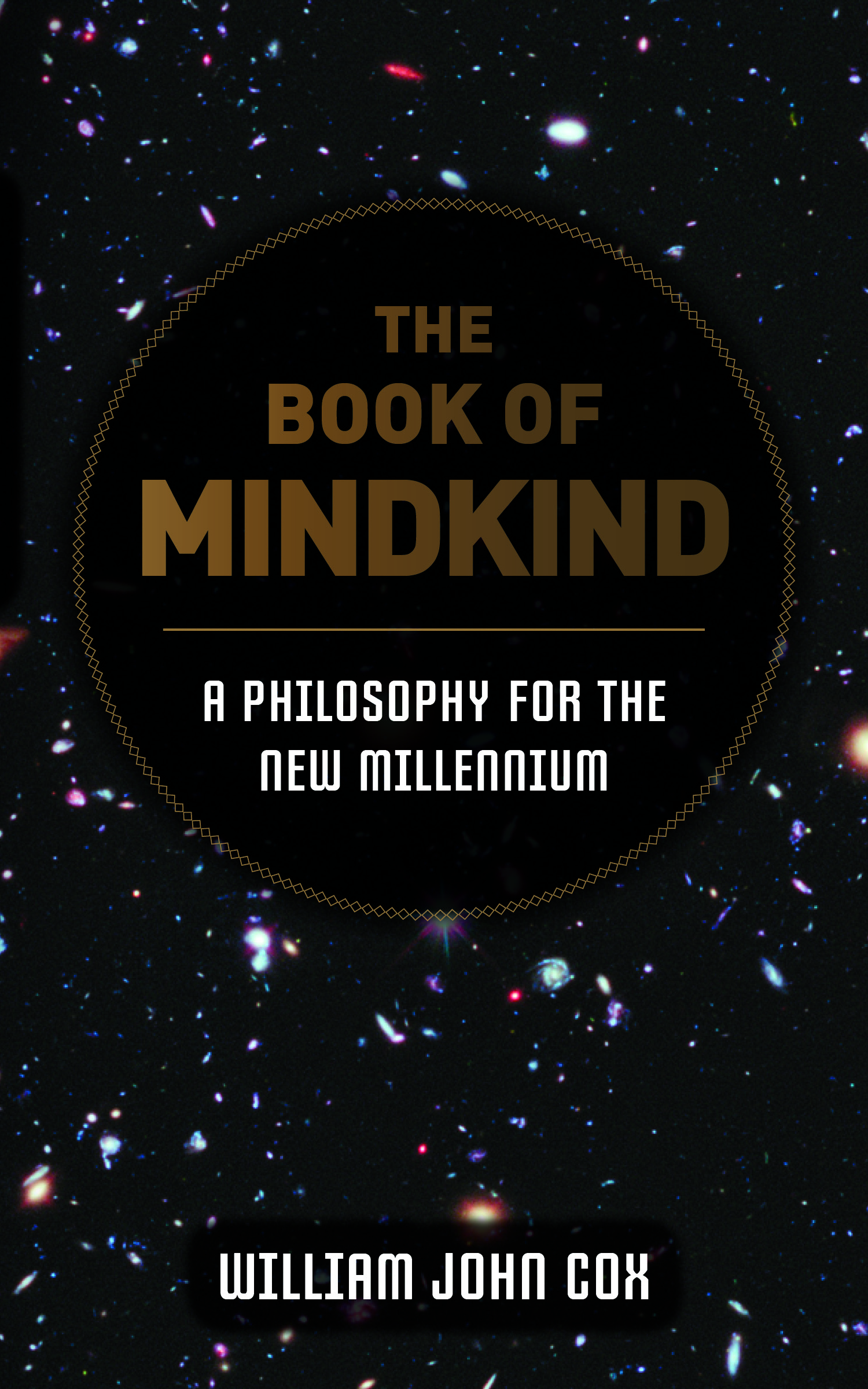
The Book of Mindkind
Coining the term, The Book of Mindkind is a philosophy of hope in a time of despair, a wakeup call in a time of danger, and an engaging quick read for the curious-minded. The theory of Mindkind is an entirely original philosophy, likely the first to be conceived in the past century, certainly the first of the new millennium.
People are looking for new ways to think about the human society rapidly evolving around them, and they are searching for answers and solutions to the age-old questions of existence. The world may not be spinning out of control, but it can no longer be held together by the beliefs of the past.
Now, more so than ever, with political extremism—driven by corporationalism and religious fundamentalism—shutting down democratic processes and suppressing rationalism, there is a critical need for social, spiritual, and political alternatives.
The Book of Mindkind is not a new-age philosophy—rather it presents a logical foundation for a practical worldwide solution for the social, economic, and environmental crises facing human existence.

Mind & Its Languages of Reason
Mind & Its Languages of Reason is a collection of papers that is a sequel to The Book of Mindkind. The first papers focus on mind and quantum physics, looking beyond the metaphysical, to the probabilities of mind as a factor in the mechanics of matter. The book includes papers on Universal Numbers and Universal Geometry.
In its entirety, Mind may be of some value in determining where we came from, where we are, and where we are going. The book concludes: "Whether we die off or fly beyond the stars lies entirely within our own minds, and it is there that responsibility resides. The choices to be made are ours, and ours alone. The time, however, for decision-making is now upon us, and we will either come together, or we shall perish together. There is no escape from this reality, but alternative futures are always available, each depending upon the choices we make—right now.
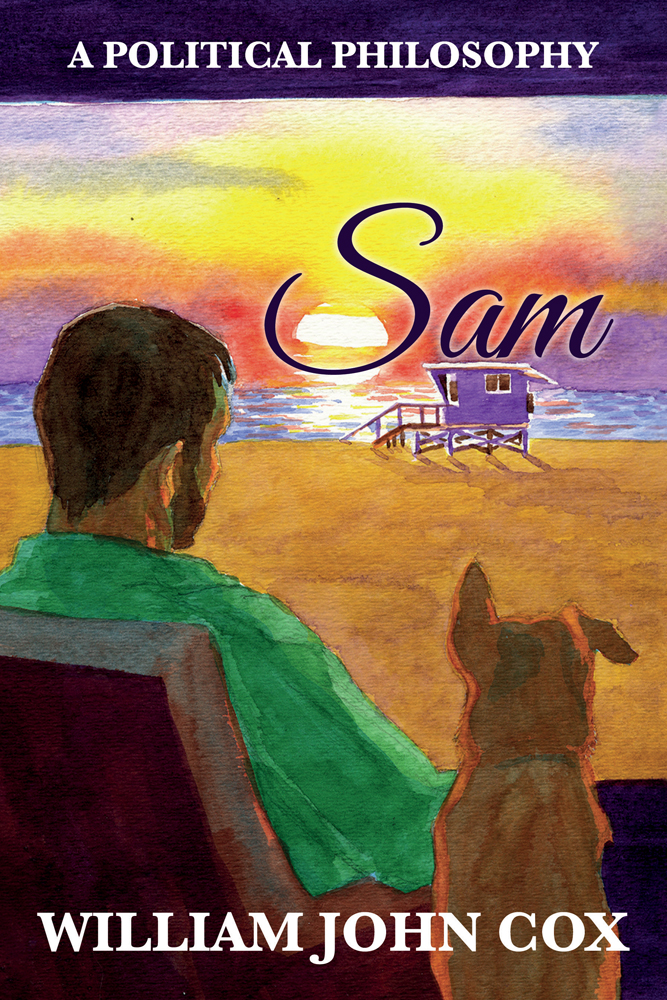
Sam: A Political Philosophy
Not since Ayn Rand's Atlas Shrugged has a political philosophy been so strongly presented by fictional characters. Entering the new millennium, the philosophy illuminates an enlightened path to the stars and beyond.
Sam, a homeless Army veteran, suffered severe emotional distress from his participation in a Gulf War atrocity and physical disabilities from his exposure to nerve gas. With the second Iraq War, Sam is so distraught by the death and injuries suffered by Iraqi children and young American soldiers, he decides to bite off and swallow a finger every day to demonstrate the stupidity of war and the idiots who glorify it.
His ordeal goes viral as it is covered by a political columnist, who reports the mutilations and what Sam has to say each day about war, government, and corrupt officials.
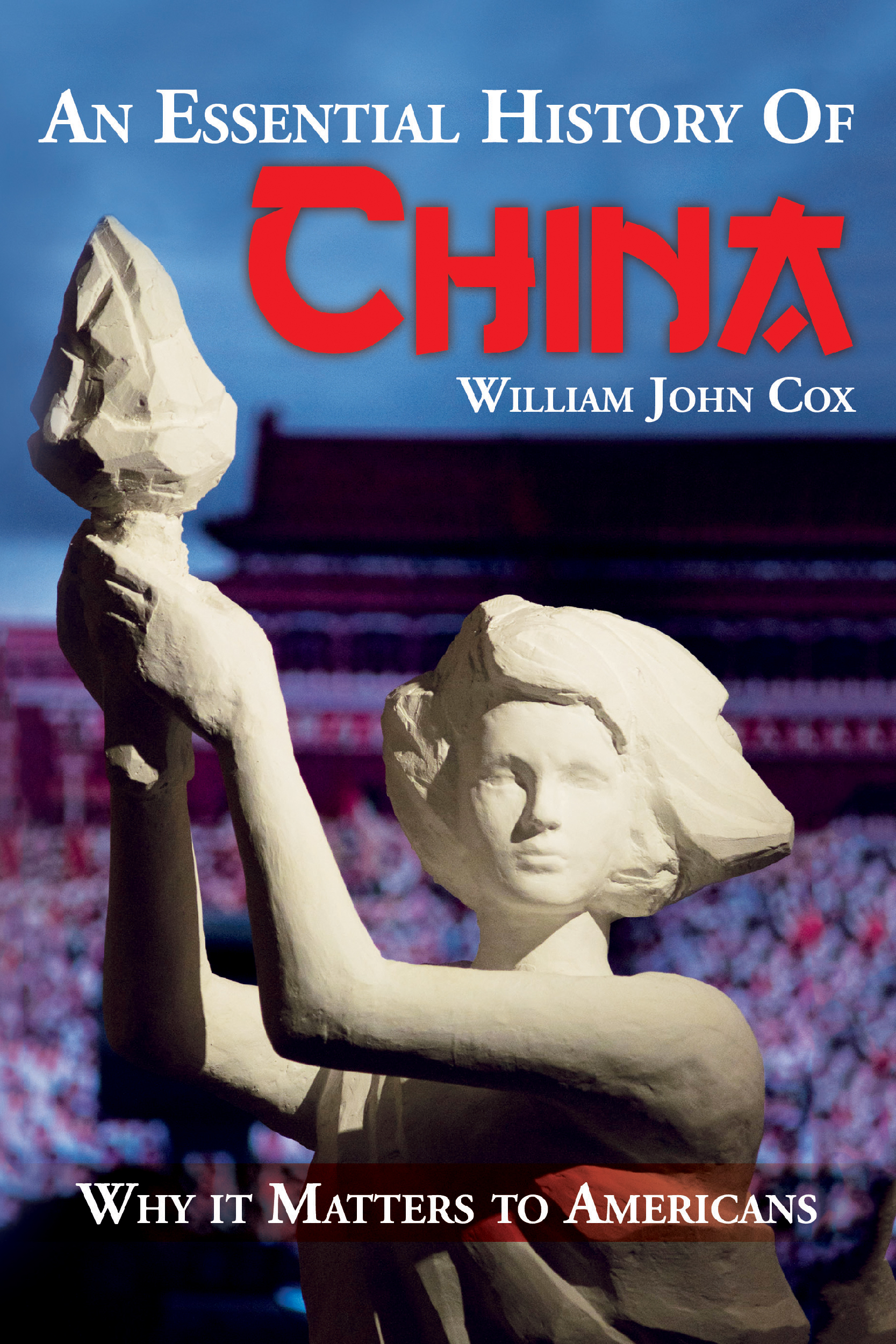
An Essential History of China: Why it Matters to Americans
Who are the Chinese people? How do they think? What experiences have shaped their attitudes? Why should it matter to Americans?
At a time when most people in the West still believed the earth was flat, the Chinese had accurately calculated its size, charted the sky, invented the compass, and were navigating the oceans. The rest of the world was struggling to get to China, but China was already there.
We can only imagine how different life would be today if the tiny 60-foot ships of Columbus and de Gama had been confronted by massive Chinese dreadnoughts, 440-feet long and armed with cannons and rockets. Most likely, we would all be speaking Chinese, instead of wondering whether our children should be studying it.
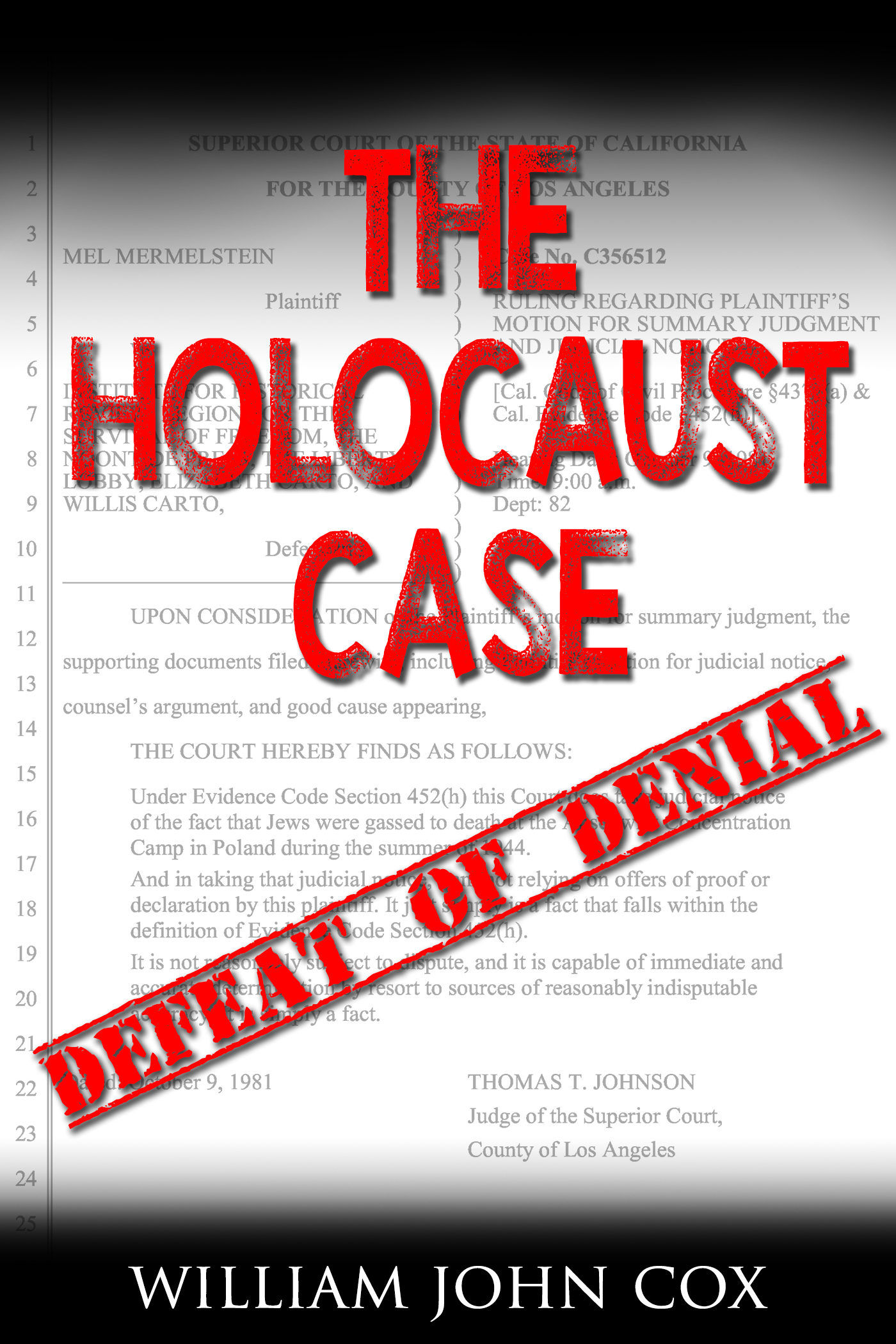
The Holocaust Case: Defeat of Denial
The Holocaust Case, which ruled the gassing of Jews by Hitler was “simply a fact” and “not reasonably subject to dispute,” was featured in the movie, Never Forget, but the real story has never been told.
Now, for the first time, the true facts are revealed by William John Cox, the public-interest lawyer who represented a Nazi death camp survivor and sued the radical organizations that denied the Holocaust. In retaliation, Cox was sued for defamation by the reclusive leader of a shadowy consortium that earned millions peddling historical lies and bizarre theories of racial superiority. His recollection of these matters is supplemented by official court records.
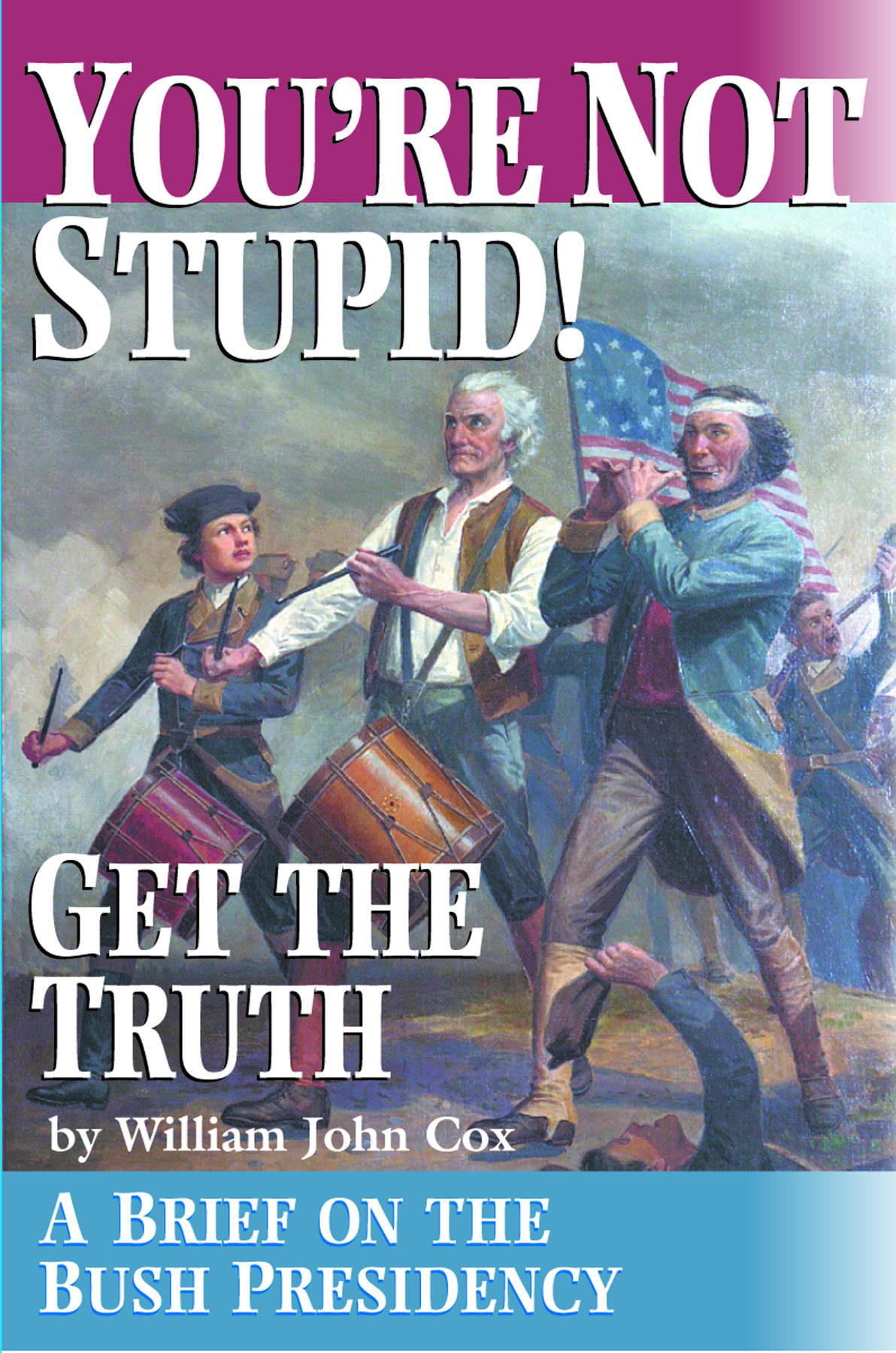
You're Not Stupid! Get the Truth
Information is power, and in this day and age, most Americans are powerless. That's why this book is written for you, a busy person, to collect the key points scattered in a score of new political books in this election year. Many of us are sitting in the dark, staring at the wall, watching Fox News and MSNBC under the mistaken belief we are seeing the truth. But You're Not Stupid: Get the Truth helps drag us into the sunlight by providing an examination of George W Bush and his presidency.
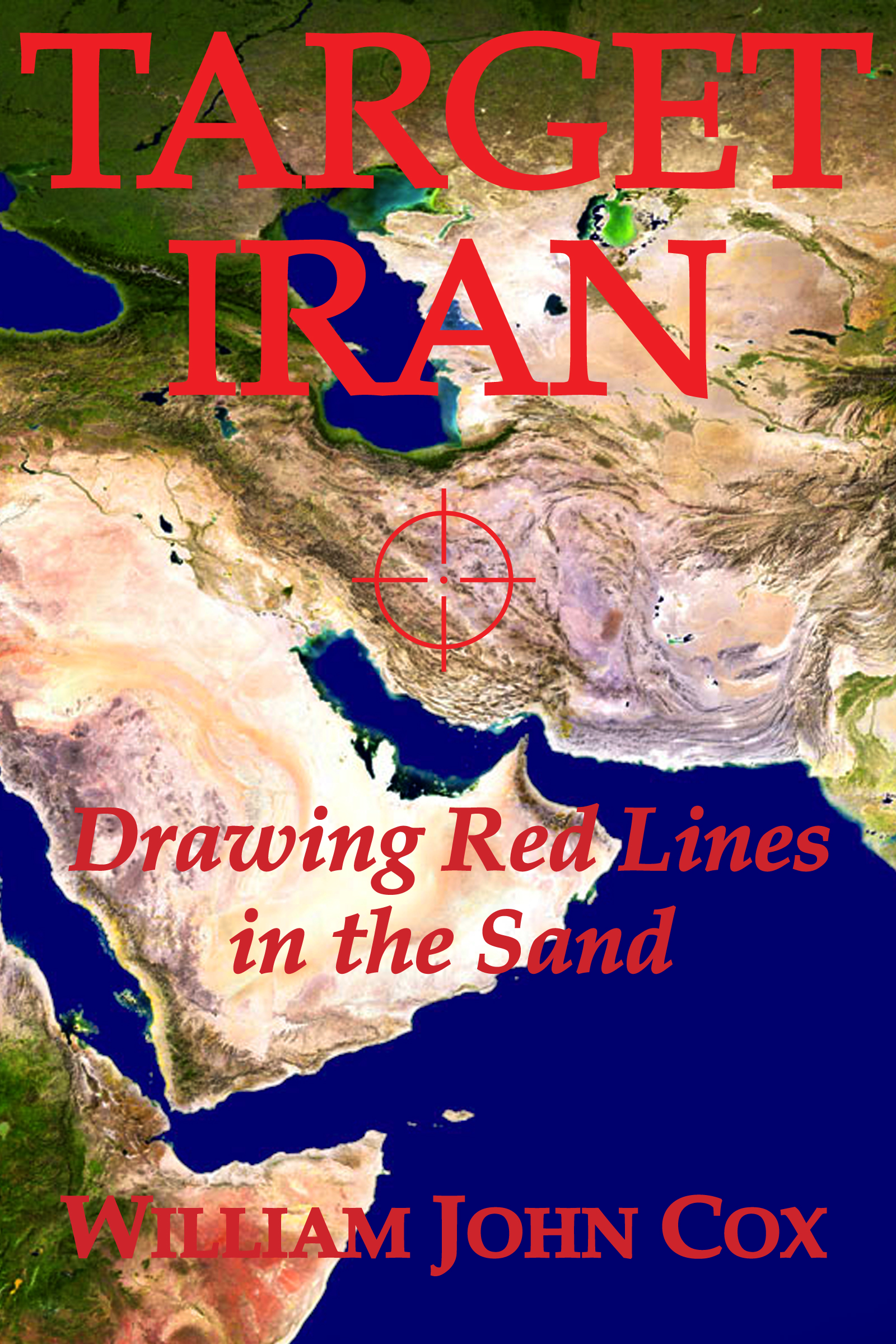
Target Iran: Drawing Red Lines in the Sand
A history of Iran and its conflict with the United States and Israel over its uranium enrichment program, a discussion of the likelihood of war between the parties and a peaceful solution that offers a comprehensive nuclear weapons policy for all nations.
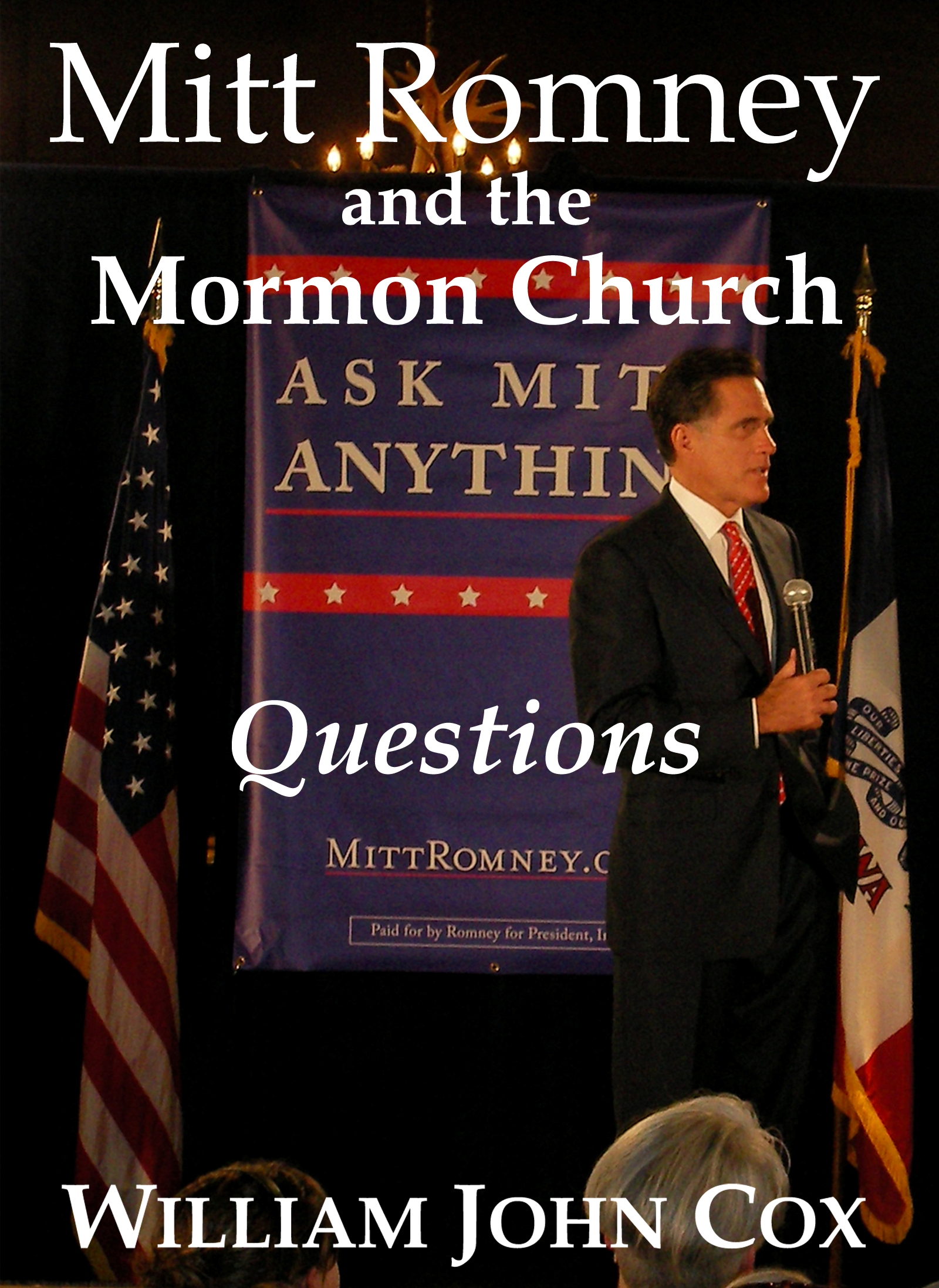
Mitt Romney and the Mormon Church
A brief review of the Mormon corporate empire and the power it holds over high priest and presidential candidate Mitt Romney, whose family has been a part of the Mormon Royalty since the Church's creation.
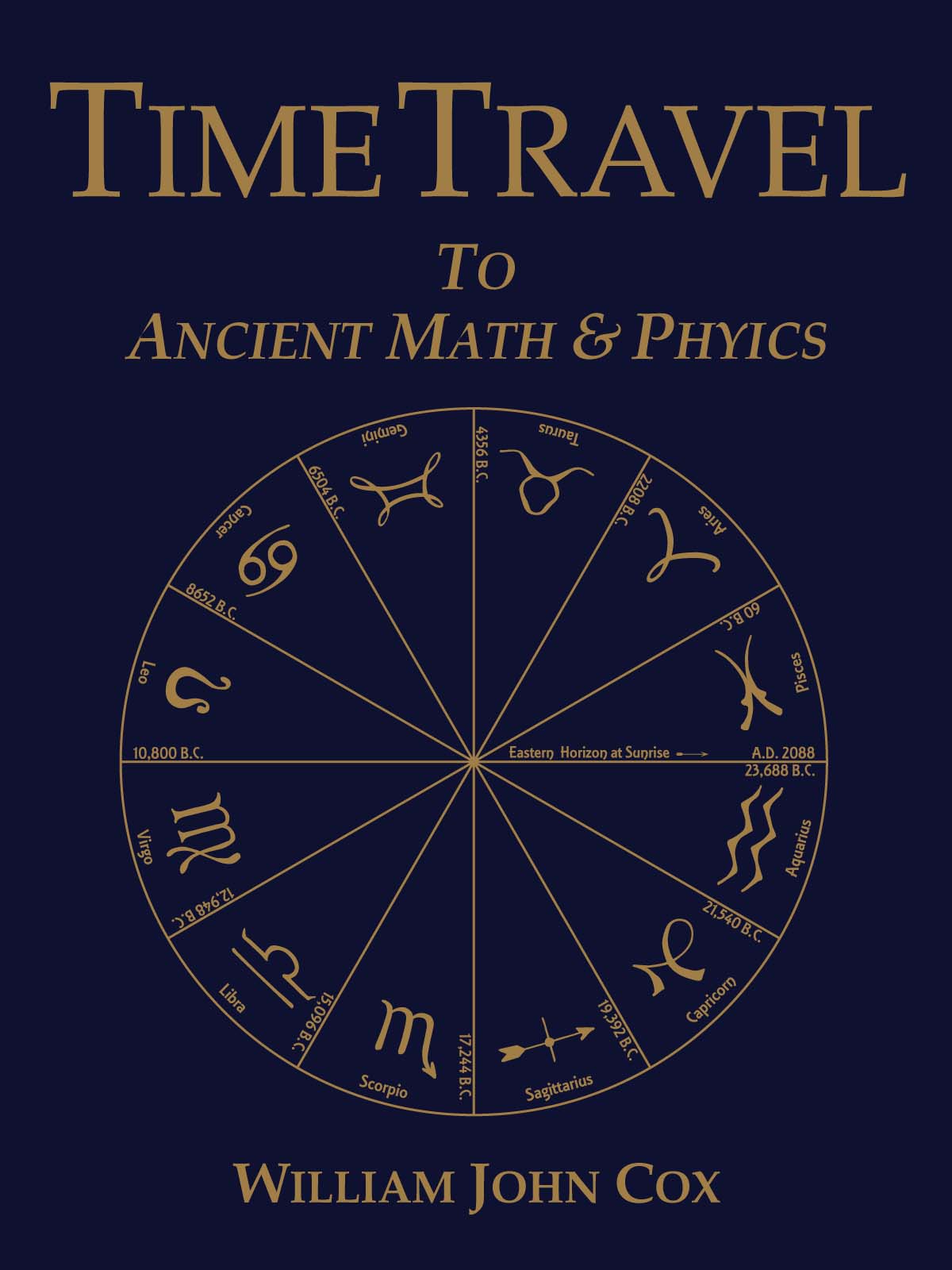
Time Travel to Ancient Math & Physics
The reader is transported all the way back to the beginning of time and then bounced forward through a number of leaps to the death of the earth. During the voyage, we discover that our most ancient civilizations were seafaring and that they made use of a very sophisticated level of science, mathematics and technology.


USVRA: A Vision
A vision of how the United States will be following the Voters' Bill of Rights.